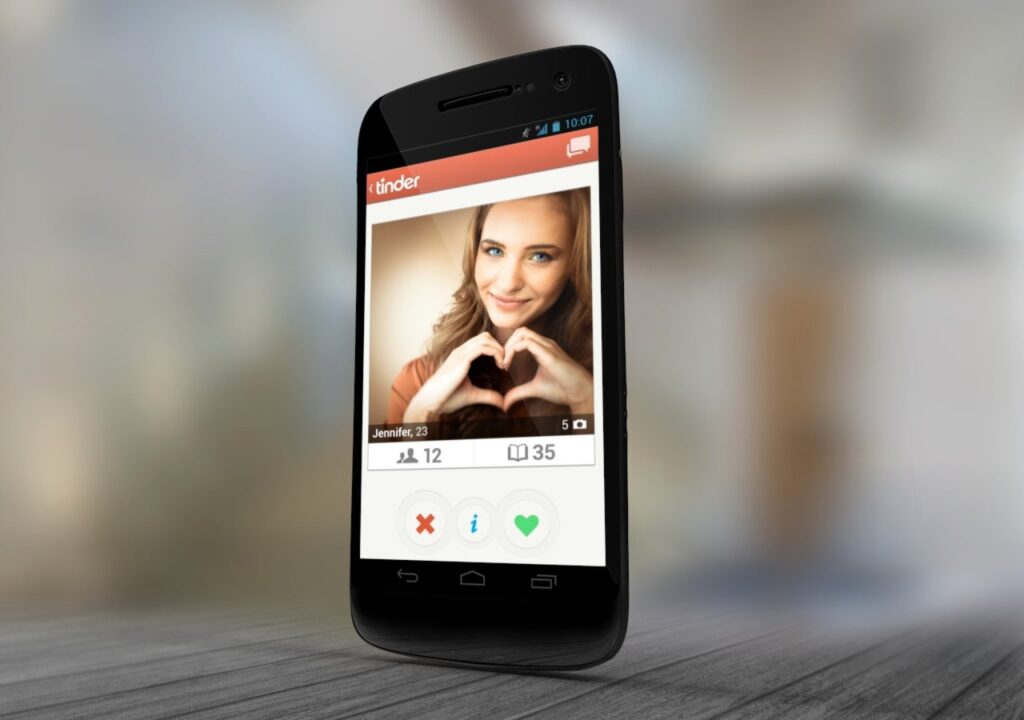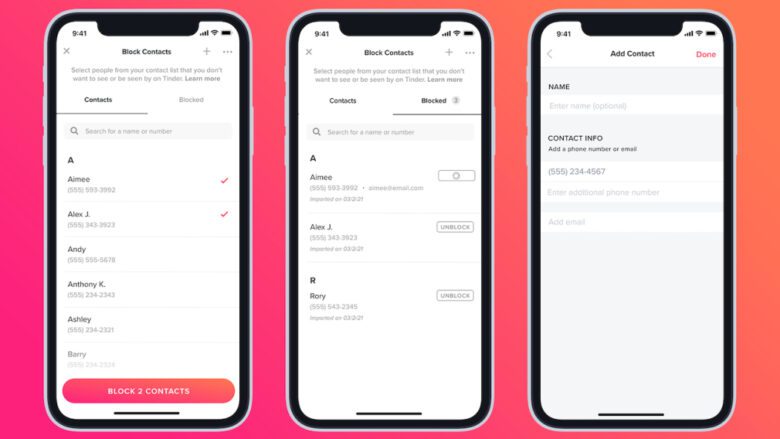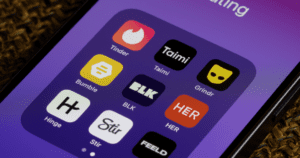If you are young enough you might not even remember a time before dating apps existed. It feels almost quaint, really. But for thousands of years, people were meeting and mating without the assistance of Bumble or Tinder, when Hinge was just the sparkle in an innovator’s eye. For those of you who can’t imagine what it was like, watch a ‘90s romcom or perhaps an old episode of Friends or How I met Your Mother, where people went on blind dates with their aunt’s dentists or attended speed dating events. Hell, I’ve been to a few blind dates in my life as well.
Despite modern methods being much more convenient, there were some upsides to the old ways though. For example, normally you wouldn’t get set up with someone completely unsuitable for you. Sure, there’s an episode of Friends where Chandler accidentally goes on a date with Janice, but for the most part, your smug couple friends remembered your exes and wouldn’t slap you on the arse and send you off to awkwardly watch Pulp Fiction with someone who still, for some reason, has all of your Will Smith cassettes and won’t give them back. Her mother says hi, by the way, and wants to know what went wrong.
Exploring Tinder’s new feature
And then, in the late ‘00s/early ‘10s, we all got into online dating. Tinder didn’t care if it was showing you your ex’s sister, your sister’s ex, your university lecturer, technically-still-married colleague or your high school bully. Tinder was going to show you everyone, because presumably you’d want to sleep with someone. But, of course, we cared.

There were the funny situations (running across your friends and superliking them), the it’s-funny-if-it-doesn’t-happen-to-you situations (running into colleagues or exes and very, VERY carefully swiping left) and the straight-up concerning situations (which range from finding out that your friend’s partner is cheating on them and using dating apps all the way to getting accidentally outed using a LGBT dating site).
Now, Tinder has decided to let us remove some people that we’re not interested in interacting with. They’ve trialled a new feature and it’s been rolled out everywhere. It works like this: Tinder users can modify their settings and use people’s phone numbers to block them. So, for example, if you don’t want to find your ex’s Tinder page, you can take their phone number and add it to a list in your settings. That way, you’re not shown their profile and they’re not shown yours.
This is the kind of simple innovation that works really well. The applications of this are immense and can help anyone trying to avoid family members, and it has wider implications for the professional world. It might be a bit weird to come across your bosses’ dating profile (although there certainly is some comic potential), but, more seriously, it could help stop inappropriate contact in a number of other situations, too.
Block Contacts
If you’re a lawyer or a therapist, for example, you wouldn’t want to see your clients’ profiles, or if you teach in a university you shouldn’t have anything to do with your students’ dating lives. We don’t know yet if workplaces will allow (or even encourage) their staff to use the feature: they will need to access people’s private phone numbers – presumably that will depend on data protection laws – but it would make sense for anyone who keeps their work and private lives separate.
Naturally, Tinder has first run some tests for the ‘Block Contacts’ feature. Initially rolled out in India, Korea and Japan, their initial research found that users typically blocked 12 people. It’ll be interesting to see if the numbers change based on location: presumably, anyone who works remotely won’t need to worry about matching with colleagues because of the physical distance between them. Tinder’s initial success may well attract the attention of other dating apps and perhaps soon it will become common for apps to have similar features. Dating apps may vary, but the uncomfortable feeling you get when you see your ex’s profile stays the same.
So, for now, it seems like Tinder has managed to achieve something pretty good with something very simple. A spokesperson from Tinder said that they might not be able to prevent you from bumping into your ex at a coffee shop, but at least you won’t see them online. And, given that Tinder is just a dating app, that’s really all we can ask of them.



